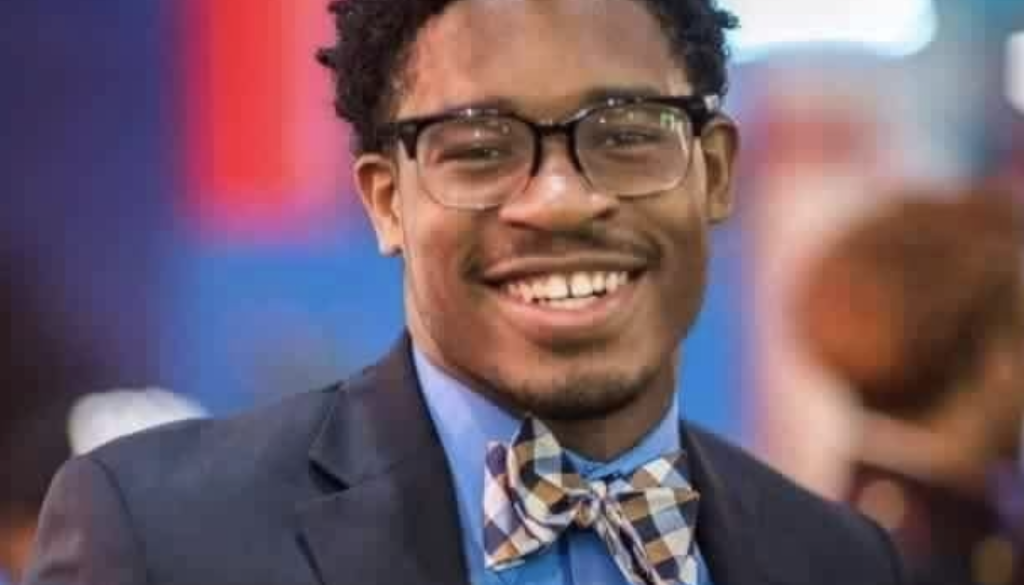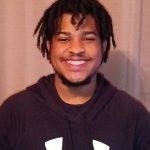‘I was stricken with anxiety everyday…’
Maalik Shakoor, Clayton High School class of ’14 appears to be on a glide path to success and maybe even fame and fortune. At age 24, Shakoor holds a degree in film production from Webster University, and aleady has 13 film credits. You can look him up on IMDB. Shakoor has starred in a highly praised film called Static that that has drawn hundreds of thousands YouTube viewers from around the world.
At the same time, Shakkor has used his charisma and presence to advocate for social justice issues, building on the learnings he gleaned as a teenager through his participation in Cultural Leadership, a program that brings together whites students and students of color to understand the world through the experience of Jews and African-Americans.
With all that said, it might be hard to believe that when Shakoor started at Wydown Middle School in Clayton, just a bit more than 10 years ago, he was “stricken with anxiety everyday.” That’s in part, why Shakoor joined a petition drive calling for changes in the district’s approach to students of color. In an interview with Richard Weiss, Shakoor explains why.
Weiss: How did you feel about going to Clayton schools?
Shakoor: I was just socially stricken with anxiety every day. I had panic attacks. At the time, I didn’t know what it was, but like every time I would go into Clayton, I would feel mad stress like everybody’s looking at me. … Things got better after I joined more clubs and started to find myself more.
Weiss: What caused the panic attacks?
Shakoor: Just being in the environment because I’m from north St. Louis, all my family is Black. All my friends in the city are Black, and of course on the bus ride, Black people. Even my close network of friends is black. Sometimes walking through the halls was just, I just felt like man, it’s a weight. I feel like every Black person carries it, and either they know, or they are unknowledgeable about it, but it’s almost like I got to represent the people. It’s like the weight of the entire black community is on one Black person’s shoulders, and a friend of mine pointed out to me that I didn’t have to do that. But that was years later, like in high school, but I was thinking like, “Man I got to be the good Negro. I got to be a good Negro.” I can’t give them any reason to dismiss me or write me off.
It’s almost like you start playing a character. Either you aren’t black enough, or you are too black. I wanted to be out of the way and invisible as much as possible.
Weiss: Is there anything you can recall that triggered your anxieties?
Shakoor:There’s a lot because, as you can probably tell as I am speaking to you through this phone conversation, I am using my good Negro voice. I am showing you that I am knowledgeable in these points and to show you that I am a credible source. But there will be times when something got under my skin because I felt like it was so unnecessary.
I remember once I asked a classmate who was in band with me, “Hey, where the restroom at?” Just like that. And he’s like, “Hey, where the restroom at?” And I was like, “(sigh) Do ou know where the restroom is.” And he’s just like, “That way.” As if like, oh OK, now that you’ve addressed me in my tone that I find acceptable, now I will tell you where the restroom is at. It was an eye-roll moment.
Weiss: Do you think the people Clayton got on the Black kids about grammar more than white kids?
Shakoor: Definitely, because of the vernacular and the twang. A lot of us come from southern roots like you probably know. I read this like how if a white person from the South uses Black vernacular, it’s called a Southern accent, but when a Black person does it, it’s just considered speaking ignorant or being uneducated.
Another thing, I feel like a lot of students, Black students, in particular, were a lot quicker to get kicked out of class and placed in remedial classes. I was put into a remedial class for a bit when I was making my transition from a South County middle school, and when I was in remedial classes it was a breeze for me, but I was like, “Why can’t the teachers give me a tutor or assign something else?”
But they put me in remedial classes, and the remedial classes were always filled with Black people, and I’m like, “What?” And it’s just things like that that nobody asks why but they are just things that you notice.
Weiss: You headed up the Black Student Union at Clayton and you were eager to include white students. Were you the first to, in a sense, promote integration for that organization.
Shakoor: It was mostly Black students, but I did work to integrate it. I learned through Cultural Leadership that race really is just a fallacy that was made to control and organize people out of power. There have been scientific experiments testing the DNA of two black people, and they can be drastically different. There are so many different countries in Africa and they are all so ethnically diverse and different. Yet you could take the DNA of you and me, and we’d be more genetically similar than probably me and someone from Kenya. We’re all conditioned to think that just because you’re a different color and I’m a different color that we’re completely different species. … We are not different at all. We are people.
Weiss: How did white students react to your outreach efforts?
Shakoor: I would get all types of crazy responses because I would just want white students to come and like hear what the Black students have to say and hear about the Black experience. I got every excuse in the book from “I don’t see color” to “I’m not black.” A lot of dismissal. But, I had a few white students attend and even some white teachers and I was very proud of that.
Weiss: What led you take part in the petition effort asking that Clayton do more around anti-racism and to do it sooner rather than later.?
Maalik Shakoor: I always try to take the initiative and always try to fight injustice where I see it. I’m constantly out here protesting. Even my part in films embodies Black struggle and Black liberation. I feel like it’s my duty and it’s my right because as Martin Luther King said, “If one person is not free, we are all not free.” And until I see significant change in the Black community especially Black treatment in America and not just for black people but for gay people, trans people, for women, Native Americans, indigenous people I’m going to keep fighting. I feel like the point of life is to leave the world better than you inherited it. That’s what I am about.
07/16/2020




